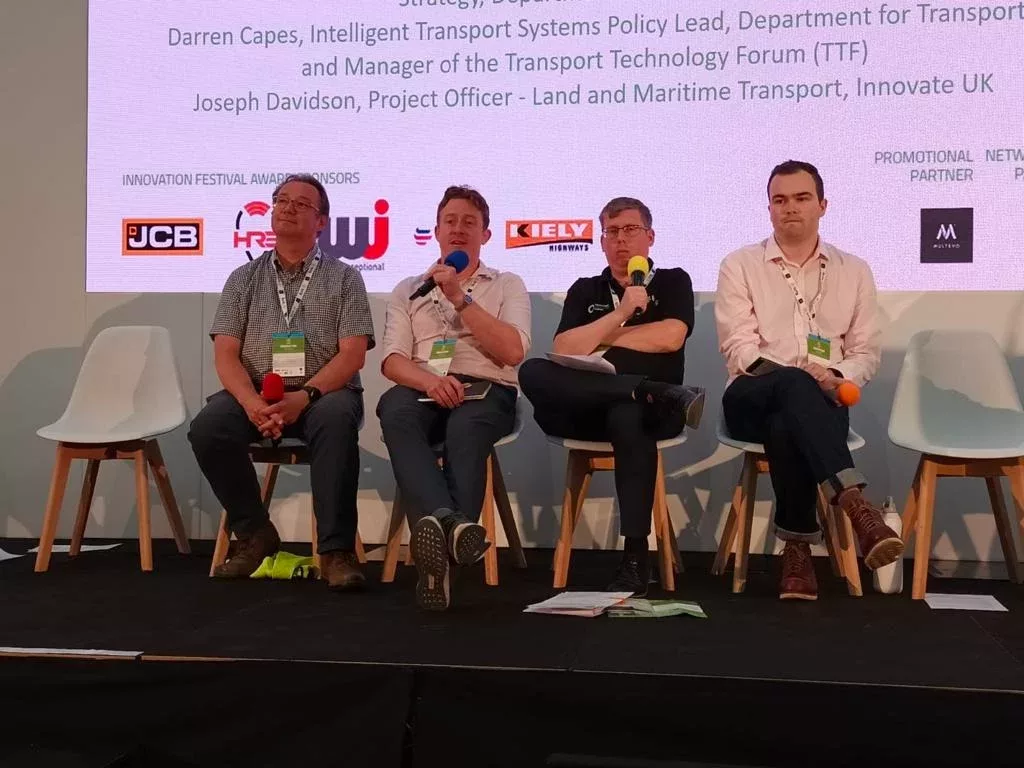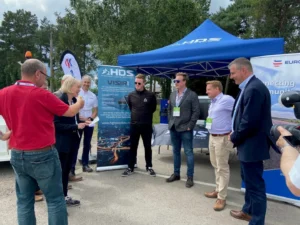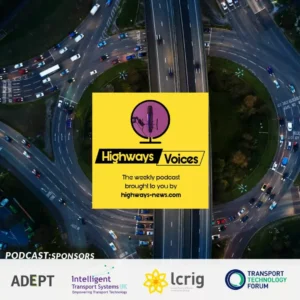The UK’s highways and transport innovators will need to look beyond their own industries and adapt them for our needs in order to maximise the use of technology in the future of traffic management.
That’s the advice of Darren Capes, Intelligent Transport Systems Policy Lead at the Department for Transport, speaking during a panel debate at the LCRIG Innovation Festival in Newark.
“Innovation could come from Social Media, Financial Services or the Military,” he explained, “So we need to have the widest view of technology, and therefore where innovation is coming.”
The supply chain is urged to always look at the tangible outcomes from their ideas, rather than just innovating for innovation’s sake, with Mr Capes’s colleague at the DfT, Head of Local Highways Policy Matthew Eglington, pointed out that in the National Infrastructure Commission progress review, innovation was mentioned nearly 50 times, but that the key is focussing on outcomes.
“Innovation carries risk, so you need to avoid innovation for innovation’s sake and concentrate on innovation with a tangible outcome,” he said. “Make sure the product is fine-tuned to meet the needs.”
Joseph Davidson, a Project Officer at Innovate UK, pointed to funding opportunities available to help companies turn ideas into solutions. “Our programmes are addressing real challenges and looking at how can we go to scale,” he explained. “We engage with local authorities to understand scalability.” He mentioned the organisation’s Innovation Hub covering funding and networking, to help companies in whatever stage they are.
Further help was highlighted by Darren Capes who discussed the newly-published Manual for Smart Streets, which is an interactive web resource delivering guidance to ensure local authorities understand the development, specification, procurement and use of technology by road authorities. He explained how it initially sets out ‘use cases’ exploring how new and emerging technology can be used to realise transport policy aims.
He also highlighted the important work of the Transport Technology Forum, saying “The TTF is about having a space where we can ensure local authorities understand central government’s highways and policy aims, and to help DfT shape the work and support it delivers.”
Asked how we can work to make innovation become business as usual, Mr Capes said that he is supporting this by ensuring standards and guidance are in place, and opening up innovators to support through the Transport Technology Forum.
Mr Davidson said the key is to demystify the landscape so the barriers to entry are lowered, and that Innovate UK can show where previous funding has had an effect so companies can see what has been done.
Mr Eglington concluded by urging the industry to engage with Government, saying Ministers are always looking for non-fiscal solutions they can introduce out of the box and that the industry must remember “it’s not just about potholes.”
(Picture – LCRIG)























